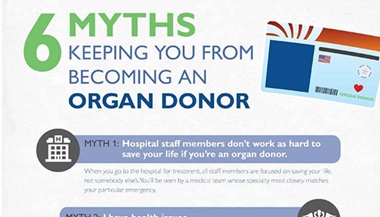Living Organ Donation: Answers from Transplantation Expert Andrew Cameron
Featured Expert:
Nearly 124,000 men, women and children are awaiting organ transplants in the United States. A living donor can eliminate the need for a recipient to be added to the national waiting list.
Andrew Cameron, M.D., Ph.D., a Johns Hopkins transplantation expert, answers frequently asked questions about live organ donation:
Who can become a living donor?
Living donors can be relatives, friends, neighbors, in-laws or altruistic strangers (individuals who wish to donate to an unknown recipient purely out of selfless motives). Living donors must be at least 18 years old, in good physical and mental health, and must have a body mass index that is less than 35.
What can I donate?
As a living donor, you can donate one of your kidneys and part of your liver.
What are the risks and recovery for a living organ donor?
Just like with any other major surgery, there are risks and a period of critical recovery time for transplantation surgery. For kidney donors, the remaining kidney will enlarge slightly because it has to do the work of two healthy kidneys. For liver donors, the liver regenerates and regains full function. The recovery time after surgery is typically six to eight weeks. Living donation does not change life expectancy. Most donors go on to live healthy lives after recovering from the surgery. Specific donor-related risks should be discussed with your transplant team.
Can I donate my organs if I have a medical condition?
Possibly. Most people can donate, but there are a few exclusions, such as active cancer or systemic infection. Your doctors will evaluate your medical condition and the condition of your organs to determine if you are qualified to be a living organ donor.
Who pays for the cost of an organ donation?
In most cases, the transplant recipient’s private health insurance, Medicare or Medicaid will pay for the donor’s initial evaluation, surgery and postoperative care.
Can non-U.S. citizens donate organs?
Yes. Non-U.S. citizens can receive and donate organs in the United States.
Can I sell my organs?
All live kidney and liver donations must be a completely voluntary decision. Donors should be free from any pressure or guilt associated with the donation, and they cannot be paid for their donation. In 1984, Congress passed the National Organ Transplant Act, which makes it illegal to buy or sell organs.
Sign Up for Our Free Newsletter

One of the best things you can do to protect and improve your health is to stay informed. Your Health is a FREE e-newsletter that serves as your smart, simple connection to the world-class expertise of Johns Hopkins.






